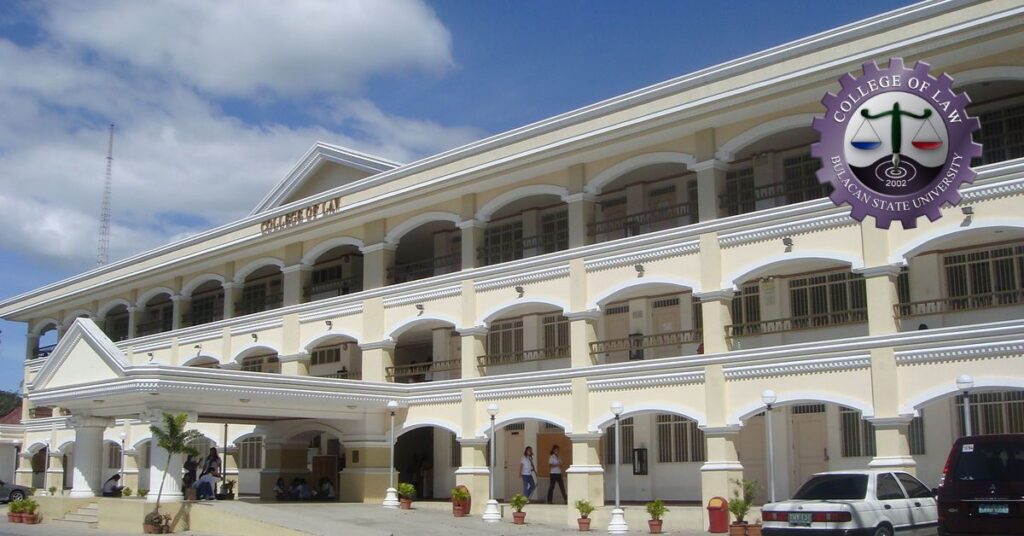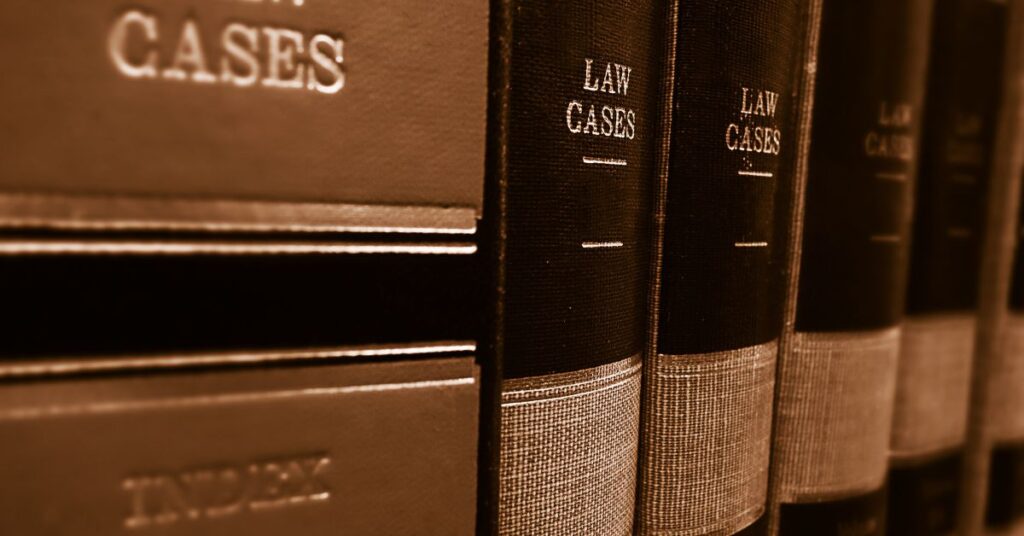Law school is a professional graduate school that provides law and legal studies education. The primary purpose of a law school is to prepare students for law practice. In most countries, including the Philippines, a law degree is a prerequisite for being licensed to practice law as an attorney. As of 2023, Bulacan State University (BulSU) is the only school in the province offering top-notch law degree education since 2002.
Atty. Ronel Buenaventura of BulSU placed 10th in the 2015 Bar examination with an 85.75 percent rating. I also know a few good friends who are proud BulSU graduates and are now successful lawyers.
Law schools offer courses in various areas, including criminal, civil, constitutional, international, and property law. In addition to traditional classroom instruction, law schools often provide students opportunities to participate in practical exercises, such as moot court and mock trials, which provide hands-on experience in legal procedures and techniques.
Law schools typically lead to the award of a juris doctor (J.D.) degree, which is a professional law degree.
BulSU is the Top Law School in Bulacan
The BulSU College of Law was established in 2002 and was initially named the Marcelo H. Del Pilar College of Law.

The Marcelo H. Del Pilar College of Law used to share the ground floor of the College of Engineering building inside the main campus in Malolos. In later years, the BulSU College of Law was granted their own building as shown in the picture above.
According to their website, the first batch of graduates of the college who took the 2006 Bar Examinations garnered an impressive passing average of 42.8 percent, which was much higher than the national passing average of 30.6 percent. With this performance, the statistical data issued by Supreme Court placed the BSU – Marcelo H. Del Pilar College of Law at number 16 in the ranking of the 103 colleges in the country that participated in the said examinations.
Read On his 170th Birth Anniversary: Fun Facts about Marcelo H. del Pilar (a.k.a. Plaridel), State University in Bulacan decries Red-tagging, and BulSU Releases 2021 College Application Results
To get admitted to BulSU’s College of Law, the applicant must have completed a pre-legal course in a recognized college or university. Second is that the applicant must successfully pass the BulSU entrance examination, which consists mainly of test logic, comprehensiveness, articulation, and aptitude for the law profession. Third, the applicant should accomplish or submit the following requirements:
- A Certificate from the Dean of Law that the applicant has passed the entrance examination.
- Original Transcript of Records, with Special Order and the degree, indicated therein; and with remarks “For Further Studies,” or certificate of Graduation (if Transcript is not yet available);
- Certificate of Good Moral Character from the school they last attended.
- Two (2) copies of 2×2 recently photographed pictures;
- NSO-certified Certificate of Live Birth.
Admission to law school can be competitive, as the number of applicants often exceeds the number of available spots. The specific level of difficulty in getting admitted to a law school can vary depending on several factors, including the reputation and selectiveness of the law school, the applicant’s undergraduate academic record, and their scores on standardized tests such as the Law School Admission Test.

In general, the most highly ranked and selective law schools tend to have the most competitive admissions processes, with many applicants vying for a limited number of spots. On the other hand, less demanding law schools may have lower admission standards and admit a more significant percentage of applicants.
Ultimately, the difficulty of getting admitted to law school will depend on the individual circumstances of the applicant, including their academic record, test scores, extracurricular activities, and other factors that demonstrate their ability to succeed in law school and as a practicing attorney. It’s also worth noting that admission to law school may be impacted by factors such as the current state of the economy, which can affect the demand for law degrees.
There is no specific set of pre-law courses that are considered the “best” for preparing for law school. However, particular courses can provide a solid foundation for the critical thinking, analytical, and writing skills essential for law school success. Some standard pre-law courses that are often recommended include:
- Political Science: This field provides a broad overview of government and politics, including the legal system and various legal theories.
- Philosophy: Philosophy courses can help develop critical thinking and reasoning skills, which are essential for success in law school and as a practicing attorney.
- Economics: Economics provides a foundation for understanding the economic and business principles often at the heart of legal disputes.
- History: A strong understanding of history can provide valuable context and perspective for the study of law and the ability to analyze and interpret legal decisions.
- English or Writing: Strong writing and communication skills are essential in law practice, and courses in English or writing can help develop these skills.
You may contact BulSU College of Law at (044) 919 7800 extension 1083 for more information.
Law schools look for a broad range of subjects and skills and do not necessarily expect applicants to have a background in any particular subject.
The difficulty of the Bar exam varies from person to person. The Bar exam is a comprehensive test that assesses a person’s knowledge and understanding of the laws and legal principles relevant to their jurisdiction. It is designed to determine whether an individual can practice law in that jurisdiction.
For many people, the Bar exam is a challenging and intense experience that requires months of preparation and focused effort. The Bar exam covers many legal topics, including contracts, torts, property law, criminal law, and constitutional law.
The difficulty of the Bar exam can be influenced by several factors, including the specific format of the exam, the length of the exam, and the material covered.
Ultimately, the difficulty of the Bar exam will depend on an individual’s background, preparation, and ability to perform well under pressure. Some individuals find the Bar exam a challenging but manageable experience, while others may struggle with the exam’s material and format. Regardless of the difficulty, it’s essential for individuals to be fully prepared and to approach the Bar exam with a focused and dedicated mindset.
The Philippine Bar Examination is the professional licensure examination for aspiring lawyers in the Philippines. It is administered by the Supreme Court of the Philippines and is held once a year, typically in November.
The Bar exam in the Philippines is widely regarded as one of the most difficult in the world, with a historical average passing rate of around 20%. The exam covers a wide range of legal topics, including political law, labor law, civil law, taxation, mercantile law, and criminal law. The exam is structured as a written test with multiple-choice and essay questions.
To be eligible to take the Bar exam in the Philippines, an individual must have a degree in law from a recognized Philippine law school and must have met other eligibility requirements, such as completing the required number of years of legal practice. The Bar exam is considered a critical step in becoming a licensed attorney in the Philippines, and those who pass the exam are eligible to practice law in the country.
The Bar exam in the Philippines is a highly competitive and rigorous process, and individuals who wish to take the exam must prepare thoroughly and effectively to have a chance of success. This often involves months of intensive studying and preparation, as well as seeking guidance and support from experienced lawyers and Bar review coaches.
Sources:
- About Bulsu. Bulacan State University. (n.d.). Retrieved February 9, 2023, from https://bulsu.edu.ph/about/history
- ABS-CBN News, & Erik Tenedero, A. B. S.-C. B. N. N. (2016, May 6). Meet Bulacan’s unlikely bar 10th Placer. ABS. Retrieved February 9, 2023, from https://news.abs-cbn.com/lifestyle/05/06/16/meet-bulacans-unlikely-bar-10th-placer
- Admission of students. COLLEGE OF LAW. (2016, July 1). Retrieved February 9, 2023, from https://bsucollegeoflaw.wordpress.com/admission-of-students/